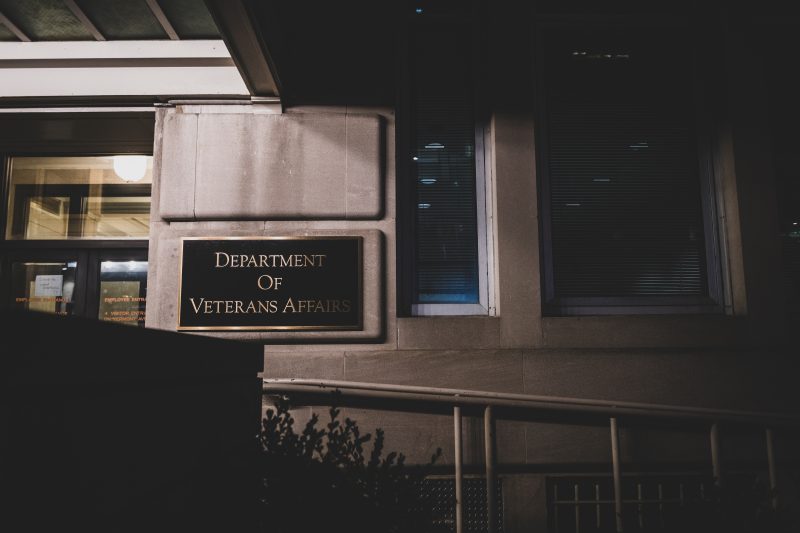
VA no longer uses Trump-era law allowing officials to fire feds faster
It’s not often that a once highly touted law has so many problems, so quickly that federal officials declare a big chunk of it useless.
That’s the case with Section 714 of the Trump-era Veterans Affairs (VA) Accountability and Whistleblower Protection Act of 2017. It was designed to allow officials to fire feds faster by weakening their civil service protections. But whistleblowers were poorly protected, accountability was shoddy and much of the act was overrun by legal rulings.
That’s not what President Donald Trump projected when he signed the legislation into law six years ago.
“This is one of the largest reforms to the VA in its history,” Trump said during a June 2017 White House East Room signing ceremony. “It’s a reform that I campaigned on, and now I am thrilled to be able to sign that promise into law … This is a big one.”
Not anymore.
The act “was used to relieve thousands of VA employees” of their jobs during the Trump administration, VA Secretary Denis McDonough told a House Veterans Affairs Committee hearing two weeks ago. But a number of administrative and judicial decisions against the department, he told reporters, meant VA officials spent so much time defending the law that it interfered with other work.
“To be honest,” McDonough said, “Section 714 wasn’t really helping us necessarily manage our workforce as much as it was getting us … before administrative bodies or before federal judges trying to explain this provision.”
They had to explain that at least five times, according to a January summary of the decisions McDonough sent to Sen. Jon Tester (D-Mont.), chairman of the Senate Veterans’ Affairs Committee. The secretary’s summary said:
• The U.S. Court of Appeals for the Federal Circuit ruled in 2020 that Section 714 “could not be applied retroactively to misconduct and performance predating” the law. Furthermore, under the ruling the Merit Systems Protection Board (MSPB) must review not only evidence of misconduct against employees, but also their penalties “to assess whether it is supported by substantial evidence.” MSPB considers appeals of “adverse actions,” including demotions, suspensions and firings of federal workers.
• A 2021 ruling by the same court undercut the VA’s ability to use “substantial evidence,” instead of “the higher preponderance of the evidence standard” in cases involving employee misconduct.
• MSPB ruled in January that Section 714 did not include VA “hybrid” employees (those covered by more than one federal employment category), “meaning they cannot be disciplined using the enhanced authority” included in the law.
• The Federal Labor Relations Authority (FLRA), which considers disputes between federal unions and management, ruled in 2021 that the VA violated its contract with the American Federation of Government Employees (AFGE) by failing to provide staffers performance improvement plans before taking actions involving them.
• FLRA also found the VA failed to bargain with the union over Section 714 and ordered the department to stop using that section “until retroactive impact and implementation bargaining was complete.” AFGE later filed an unfair labor practice charge against the department for failing to comply with the order.
“As a result of these recent decisions, VA is currently unable to utilize Section 714 for a large portion of its workforce,” McDonough wrote in a letter to Tester. “Moreover, given these recent decisions, there are few remaining practical differences between Section 714 and traditional” disciplinary measures. Similar language was used in a March 5 memo to VA officials from Assistant VA Secretary Gina M. Grosso.
Rep. Mike Bost (R-Ill.), chairman of the House Veterans’ Affairs Committee, disagreed with McDonough’s decision, arguing “VA still needs this tool.” The House panel, he added, “will continue to hold hearings on this issue to make the Accountability Act abundantly clear so that we can weed out employees who prevent VA from delivering services worthy of our veterans’ sacrifice.”
An AFGE spokesperson said none of its officials was available for comment. In a March statement submitted to the House, the union said “the law disproportionately harmed lower-paid federal workers and not the managers who supervised them.”
Tester, who sponsored the legislation, did not criticize the VA decision. His email to The Washington Post, however, said “when the Department of Veterans Affairs can’t hold bad actors accountable, everyone loses. That’s why as Chairman of the Senate Veterans’ Affairs Committee, I’m pushing VA to use the current tools to get rid of incompetent employees who violate the public’s trust and harm veterans.”
Separately, the VA’s Office of Accountability and Whistleblower Protection (OAWP) — which was legislatively codified by the act two months after Trump’s executive order created the office — still suffers reputational damage from a damning watchdog report, though it is not affected by the Section 714 decision. During the Office’s first two years, it acted contrary to its authority, while it “simultaneously floundered in its mission to protect whistleblowers …” the VA inspector general reported in 2019. “OAWP … created an office culture that was sometimes alienating to the very individuals it was meant to protect.” The VA said it is continuing to build on 17 improvements recommended by the inspector general.
Although Section 714 is no longer used, the impact of the 4,600 personnel actions taken under it remain for the affected employees.
“The decision to cease using the authority …” a VA statement said, “to take actions against employees does not impact actions previously taken under the 714 authority.”
